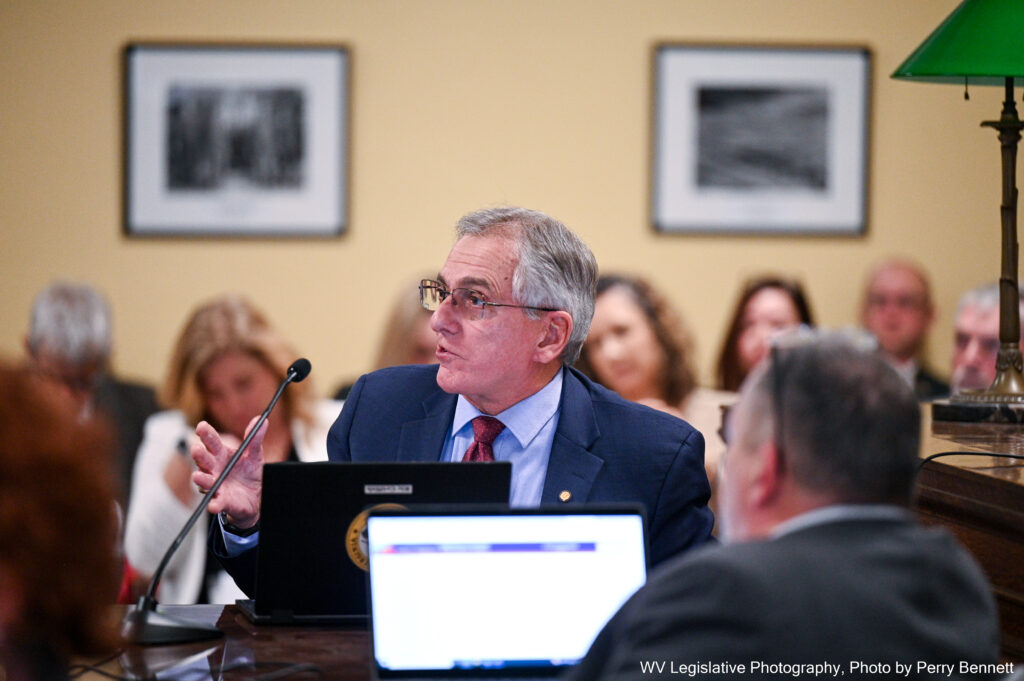The original version of House Bill 5105 would have exempted all students attending public virtual schools in the state from being vaccinated.
The number of students enrolled in virtual public school for the 2023-2024 school year is 245,047.
The bill was amended by inserting language that a child who participates in extracurricular activities at a public school must be immunized.
Delegates debated the safety and efficacy of vaccines with some asking why children are allowed to participate in church or vacations without vaccination.
Del. Steve Westfall, R-Jackson, said he has reservations about changing vaccination laws in West Virginia.
“I still have problems with voting for the weakened immunization system in West Virginia, I think it’s good,” Westfall said. “We have no measles outbreaks in West Virginia. Some of our surrounding states do. Pennsylvania has one right now – Philadelphia, but the purpose is I think trying to get some of its homeschoolers a better chance to have a better education.”
Dr. Steven Eschenaur, the public health officer for the Kanawha-Charleston Health Department was called before the committee to testify by Del. Mike Pushkin, D-Kanawha.
Pushkin asked if Eschenaur took issue with the amended version of the bill.
“From the amended amendment? I don’t see that big of an issue with it, because all of those kids that would be going to the public school, as I understand the amendment would still have to receive immunizations to protect all of those other kids from illness such as measles, mumps, rubella, etc.,” Eschenaur said.
Del. Dave Foggin, R-Wood, asked Eshenaur about immunity.
“Like I said, I’m not a doctor, I thought that if you have a group that’s vaccinated, they’re protected from the one that isn’t vaccinated,” Foggin said. “It’s just that was my understanding. You said it would protect this group from this one if this one is vaccinated.”
Eschenaur answered that if 100 children are vaccinated for measles, only about 97 incur immunity.
“So there are still a few kids in every school,” Eschenaur said. “That can be immuno-compromised, they could have a legitimate medical reason as to why they could not receive the vaccine, or they may not have developed the antibodies from the vaccine. So that’s why we want to keep that herd immunity over 95 percent.”
Del. Ric Griffith, D-Wayne, asked Eschenaur how contagious measles is.
“Measles is probably one of the most contagious diseases known to man,” Eschenaur answered. “Somebody could have walked in this room, left, and six hours later, somebody that is susceptible to measles walked in this room and contracted it. It is incredibly transmissible. That’s why we have seen so many outbreaks across the country. Why there are almost 10 states right now with current outbreaks.”
Eschenaur testified that there are measles outbreaks in all of West Virginia’s surrounding states, but none in West Virginia.
“There’s measles all around us, but not in West Virginia,” Eschenaur said. “Pennsylvania, Maryland, Virginia, are battling these outbreaks. And we don’t want that here. It’s very contagious.”
Del. David Kelly, R-Tyler, asked Eschenaur why non-vaccinated children are allowed to intermingle with vaccinated children in places like church, vacations and little league baseball.
“It just seems kind of funny to me that we can do everything else in society,” Kelly said. “But when we send our kids to school, we’re back into school, or send them there to play sports. They can’t play sports, because a mom and dad said we don’t want them to be vaccinated. And I respect your opinion, I respect your position. But it just seems funny to me that we can do everything else. But when a child wants to play sports that hadn’t been vaccinated, then they have to be vaccinated.”
Del. Rolland Jennings, R-Preston, asked how many children have adverse effects from immunizations.
“That is sort of, that is a very broad question,” Eschenaur said. “And they are dependent on many factors. And I cannot give a specific number to that.”
Griffith cited seat belt laws as “general welfare” laws the government puts in place and compared it to the vaccination laws in West Virginia.
“A little league is not controlled by the state of West Virginia or the federal government, it’s parent’s choice,” Griffith said. “But when you put somebody in the public school system, and you threaten their lives, their welfare, their health, it’s the general welfare, and that’s why we have these things.”
The bill passed, as amended, and was referred to the Committee on the Judiciary.
Appalachia Health News is a project of West Virginia Public Broadcasting with support from Charleston Area Medical Center and Marshall Health.




















